Female Fertility
How to submit an article:
- Registered users can submit any published journal article that has a unique DOI (Digital Object Identifier) name or link to Research Hub.
- For example, you can paste the full DOI link:
https://doi.org/10.1109/5.771073or just the DOI name:10.1109/5.771073into the field above and click submit. - The person who is first to submit a valid article to Research Hub will forever be credited for it, and every article submission earns you +6 Research Points.
Related Topics
Published research studies are articles that present the findings of original research that has undergone a peer-review process and has been made publicly available in scholarly journals, books or other media.

Effect of omega-3 supplements or diets on fertility in women: A meta-analysis
2024 Apr Heliyon Trop-Steinberg S, Gal M, Azar Y, Kilav-Levin R, Heifetz EM
Systematic Review Meta-Analysis IVF Female Fertility Omega-3 Fatty AcidsIncreased omega-3 intake significantly improves women's chances of pregnancy and fertilization rates.
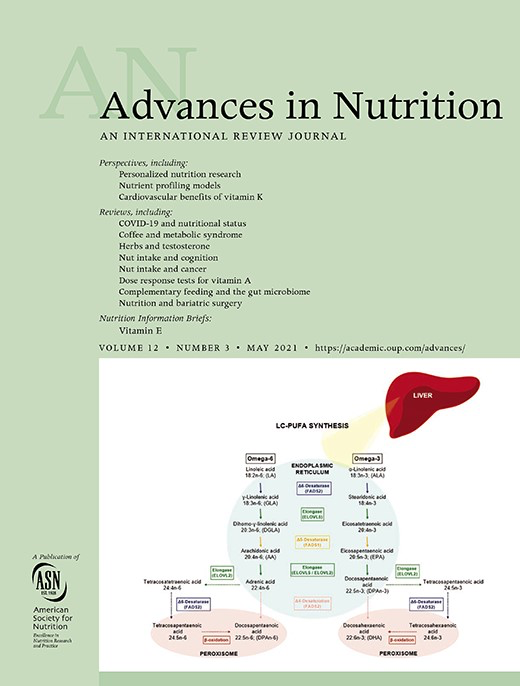
Nut Consumption and Fertility: a Systematic Review and Meta-Analysis
2024 Jan Advances in Nutrition Cardoso BR, Fratezzi I, Kellow NJ
Systematic Review Meta-Analysis Sperm Quality Nut Consumption Female Fertility Male Fertility Nuts NutRegular consumption of nuts improves sperm parameters such as motility, vitality, and morphology, potentially promoting successful reproductive outcomes in healthy males.
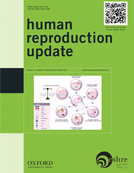
Assessing the influence of preconception diet on female fertility: a systematic scoping review of observational studies
2023 Jul 19 Human Reproduction Update Alesi S, Habibi N, Silva TR, Cheung N, Torkel S, Tay CT, et al.
Review Article Female Fertility Saturated Fats Trans Fats Mediterranean DietThe Mediterranean diet and reduced intake of trans fatty acids, saturated fatty acids, and discretionary foods like fast food and sugar-sweetened beverages may improve fertility rates.

The Treatment of Complementary and Alternative Medicine on Female Infertility Caused by Endometrial Factors
2022 Sep 07 Evidence-Based Complementary and Alternative Medicine Lin J, Ma H, Li H, Han J, Guo T, Qin Z, et al.
In conclusion, CAM therapy has certain advantages in the treatment of infertility caused by endometrial factors. Although it is not the main intervention and treatment measure for infertility caused by endometrial factors, it is still being more widely used because it can restore the physiological function of endometrium, improve the pregnancy rate, adjust the psychological state of women, and improve the quality of life.
Review Article Female Fertility Complementary Medicine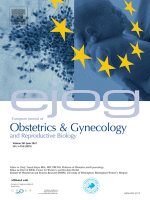
Omega-3 fatty acids dietary intake for oocyte quality in women undergoing assisted reproductive techniques: A systematic review
2022 Aug European Journal of Obstetrics & Gynecology and Reproductive Biology Abodi M, De Cosmi V, Parazzini F, Agostoni C
Systematic Review Embryo Quality Female Fertility Omega-3 Fatty AcidsIncreased intake of omega-3 can enhance the quality of oocyte and embryo, thereby potentially improving the success rate of assisted reproductive techniques.
Research insights are moderated by the Research Hub team and offer an at-a-glance overview of interesting research findings.

2024 Heliyon
Increased omega-3 intake significantly improves women's chances of pregnancy and fertilization rates.
Systematic Review IVF Omega-3 Fatty Acids
Effect of omega-3 supplements or diets on fertility in women: A meta-analysis
Trop-Steinberg S, Gal M, Azar Y, Kilav-Levin R, Heifetz EM

2024 Advances in Nutrition
Regular consumption of nuts improves sperm parameters such as motility, vitality, and morphology, potentially promoting successful reproductive outcomes in healthy males.
Systematic Review Male Fertility Nut Nut Consumption Nuts Sperm Quality
Nut Consumption and Fertility: a Systematic Review and Meta-Analysis
Cardoso BR, Fratezzi I, Kellow NJ

2023 Human Reproduction Update
The Mediterranean diet and reduced intake of trans fatty acids, saturated fatty acids, and discretionary foods like fast food and sugar-sweetened beverages may improve fertility rates.
Review Article Mediterranean Diet Saturated Fats Trans Fats
Assessing the influence of preconception diet on female fertility: a systematic scoping review of observational studies
Alesi S, Habibi N, Silva TR, Cheung N, Torkel S, Tay CT, et al.

2022 European Journal of Obstetrics & Gynecology and Reproductive Biology
Increased intake of omega-3 can enhance the quality of oocyte and embryo, thereby potentially improving the success rate of assisted reproductive techniques.
Systematic Review Embryo Quality Omega-3 Fatty Acids
Omega-3 fatty acids dietary intake for oocyte quality in women undergoing assisted reproductive techniques: A systematic review
Abodi M, De Cosmi V, Parazzini F, Agostoni C
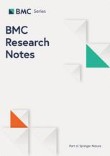
2022 BMC Research Notes
The intake of date palm enhances the sexual function in infertile couples.
Randomised Controlled Trial Date Fruit Erectile Dysfunction Male Fertility Sexual Arousal
The effect of date palm on sexual function in infertile couples: a double-blind controlled clinical trial
Jahromi AR, Mosallanezhad Z, Hosini FS, Jamali S, Sharifi N
Review Articles
Review articles summarise and critically evaluate the current state of research on a specific topic or field by synthesising multiple primary research studies.

Effect of omega-3 supplements or diets on fertility in women: A meta-analysis
2024 Apr Heliyon Trop-Steinberg S, Gal M, Azar Y, Kilav-Levin R, Heifetz EM
Systematic Review Meta-Analysis IVF Female Fertility Omega-3 Fatty AcidsIncreased omega-3 intake significantly improves women's chances of pregnancy and fertilization rates.

Nut Consumption and Fertility: a Systematic Review and Meta-Analysis
2024 Jan Advances in Nutrition Cardoso BR, Fratezzi I, Kellow NJ
Systematic Review Meta-Analysis Sperm Quality Nut Consumption Female Fertility Male Fertility Nuts NutRegular consumption of nuts improves sperm parameters such as motility, vitality, and morphology, potentially promoting successful reproductive outcomes in healthy males.

Assessing the influence of preconception diet on female fertility: a systematic scoping review of observational studies
2023 Jul 19 Human Reproduction Update Alesi S, Habibi N, Silva TR, Cheung N, Torkel S, Tay CT, et al.
Review Article Female Fertility Saturated Fats Trans Fats Mediterranean DietThe Mediterranean diet and reduced intake of trans fatty acids, saturated fatty acids, and discretionary foods like fast food and sugar-sweetened beverages may improve fertility rates.

The Treatment of Complementary and Alternative Medicine on Female Infertility Caused by Endometrial Factors
2022 Sep 07 Evidence-Based Complementary and Alternative Medicine Lin J, Ma H, Li H, Han J, Guo T, Qin Z, et al.
In conclusion, CAM therapy has certain advantages in the treatment of infertility caused by endometrial factors. Although it is not the main intervention and treatment measure for infertility caused by endometrial factors, it is still being more widely used because it can restore the physiological function of endometrium, improve the pregnancy rate, adjust the psychological state of women, and improve the quality of life.
Review Article Female Fertility Complementary Medicine
Omega-3 fatty acids dietary intake for oocyte quality in women undergoing assisted reproductive techniques: A systematic review
2022 Aug European Journal of Obstetrics & Gynecology and Reproductive Biology Abodi M, De Cosmi V, Parazzini F, Agostoni C
Systematic Review Embryo Quality Female Fertility Omega-3 Fatty AcidsIncreased intake of omega-3 can enhance the quality of oocyte and embryo, thereby potentially improving the success rate of assisted reproductive techniques.
Clinical Trials
Clinical trials are research studies that involve people and are conducted to evaluate the safety and efficacy of new treatments or interventions, such as drugs, medical devices, or behavioural therapies.

The effect of date palm on sexual function in infertile couples: a double-blind controlled clinical trial
2022 Feb 15 BMC Research Notes Jahromi AR, Mosallanezhad Z, Hosini FS, Jamali S, Sharifi N
Randomised Controlled Trial Female Fertility Sexual Arousal Erectile Dysfunction Date Fruit Male FertilityThe intake of date palm enhances the sexual function in infertile couples.

Efficacy of Yushen Tongluo Granule Combined with Clomiphene Citrate for Anovulatory Infertility: A Double-Blind, Randomized, Placebo-Controlled Clinical Trial
2022 Jan 27 Evidence-Based Complementary and Alternative Medicine Xu H, Wang S, Gao X, Wang G
The combined Yushen Tongluo Granule (YSTLG) and clomiphene citrate (CC) used to treat anovulatory infertility can improve the ovulation rate without affecting endometrial thickness, which is efficacious and safe.
Randomised Controlled Trial Yu Shen Yong Luo Granule Female Fertility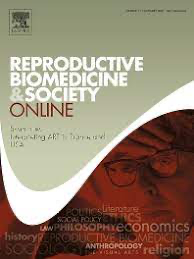
IVF, acupuncture and mental health: a qualitative study of perceptions and experiences of women participating in a randomized controlled trial of acupuncture during IVF treatment
2021 Mar 30 Reproductive BioMedicine & Society Online de Lacey S, Sanderman E, Smith CA
Randomised Controlled Trial Female FertilityWomen receiving IVF perceived that acupuncture or sham acupuncture gave them a psychological advantage through increased relaxation, reduced psychological stress, and enhanced well-being and self-efficacy.

Transcutaneous electrical acupuncture point stimulation improves pregnancy outcomes in patients with recurrent implantation failure undergoing in vitro fertilisation and embryo transfer: a prospective, randomised trial
2019 Feb Acupuncture in Medicine Shuai Z, Li X, Tang X, Lian F, Sun Z
Transcutaneous electrical acupuncture stimulation (TEAS) significantly improves the clinical outcomes of subsequent in vitro fertilisation (IVF) cycles among women who have experienced recurrent implantation failure (RIF).
Randomised Controlled Trial IVF Implantation Failure Female Fertility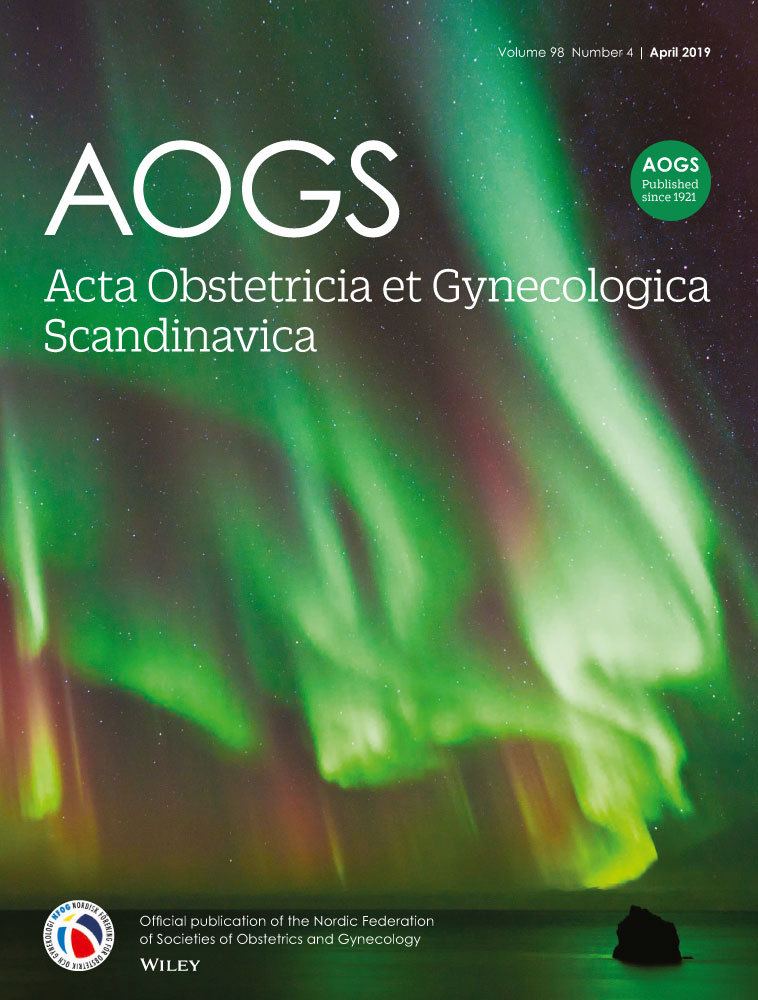
The effects of acupuncture on the secondary outcomes of anxiety and quality of life for women undergoing IVF: A randomized controlled trial
2018 Dec 28 Acta Obstetricia et Gynecologica Scandinavica Smith, C. A., Lacey, S., Chapman, M., et al.
Randomised Controlled Trial IVF Female FertilityStudy Protocols
Published study protocols are detailed plans that outline the objectives, methodology, statistical analyses, and organisation of a research study that have been made publicly available for others to review and use as a reference.

Safety and Effectiveness of Acupuncture for POSEIDON Patients in IVF/ICSI: A Protocol for Systematic Review and Meta-Analysis
2020 Sep 8 OSF Registries Zhu, X., Yang, L., Li, Z., et al.
Study Protocol Female Fertility
The efficacy of acupuncture for the treatment and the fertility improvement in child-bearing period female with Hashimoto Disease A randomized controlled study
2020 Jul 02 Medicine Li, Fangyuan; Qi, Zhang; Hua, Lu; Wang, Xinxin; Ling, Mi; Juan, et al.
This will be the first large-scale trial specifically evaluating acupuncture therapy in child-bearing period female with Hashimoto thyroiditis.
Study Protocol Female Fertility Acupuncture Hashimoto Disease
The efficacy of acupuncture for the treatment and the fertility improvement in child-bearing period female with Hashimoto Disease
2020 Jul 02 Medicine Li F, Qi Z, Hua L, Wang X, Ling M, Juan D
This will be the first large-scale trial specifically evaluating acupuncture therapy in child-bearing period females with Hashimoto thyroiditis. If the study confirms the effectiveness of acupuncture treatment, more consistent acupuncture therapy can be set up for clinical practice.
Study Protocol Female Fertility Hashimoto Disease
Acupuncture to improve live birth rates for women undergoing in vitro fertilization: a protocol for a randomized controlled trial
2012 May 18 Trials Smith, C.A., de Lacey, S., Chapman, M. et al.
Study Protocol Female FertilityPresentation Slides

Systematic Review
Increased omega-3 intake significantly improves women's chances of pregnancy and fertilization rates.
Trop-Steinberg S, Gal M, Azar Y, Kilav-Levin R, Heifetz EM

Systematic Review
Regular consumption of nuts improves sperm parameters such as motility, vitality, and morphology, potentially promoting successful reproductive outcomes in healthy males.
Cardoso BR, Fratezzi I, Kellow NJ

Review Article
The Mediterranean diet and reduced intake of trans fatty acids, saturated fatty acids, and discretionary foods like fast food and sugar-sweetened beverages may improve fertility rates.
Alesi S, Habibi N, Silva TR, Cheung N, Torkel S, Tay CT, Quinteros A, Winter H, Teede H, Mousa A, Grieger JA, Moran LJ

Systematic Review
Increased intake of omega-3 can enhance the quality of oocyte and embryo, thereby potentially improving the success rate of assisted reproductive techniques.
Abodi M, De Cosmi V, Parazzini F, Agostoni C

Randomised Controlled Trial
The intake of date palm enhances the sexual function in infertile couples.
Jahromi AR, Mosallanezhad Z, Hosini FS, Jamali S, Sharifi N

Randomised Controlled Trial
Women receiving IVF perceived that acupuncture or sham acupuncture gave them a psychological advantage through increased relaxation, reduced psychological stress, and enhanced well-being and self-efficacy.
de Lacey S, Sanderman E, Smith CA

Systematic Review
Acupuncture therapy on patients with recurrent implantation failure can improve the pregnancy outcome of patients. It is a relatively effective treatment with satisfactory safety and suitable for clinical application.
Li, M., Liu, Y., Wang, H., Zheng, S., Deng, Y., & Li, Y.
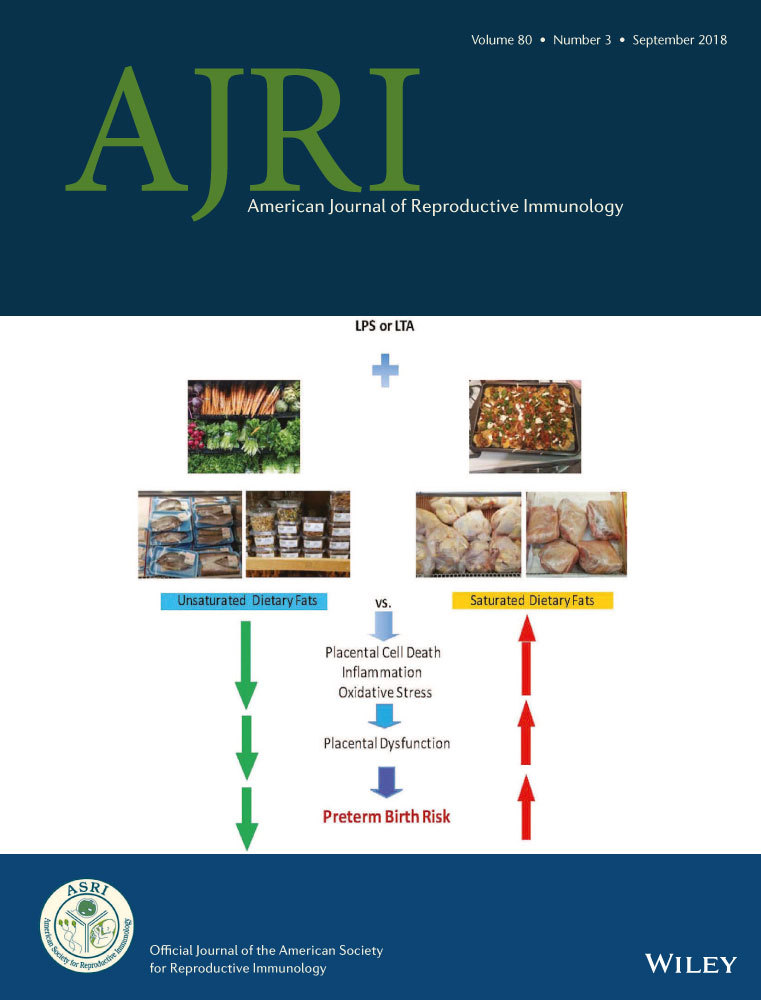
Systematic Review
Various types of genital mycoplasma infections are significantly linked to female infertility.
Tantengco OAG, de Castro Silva M, Velayo CL
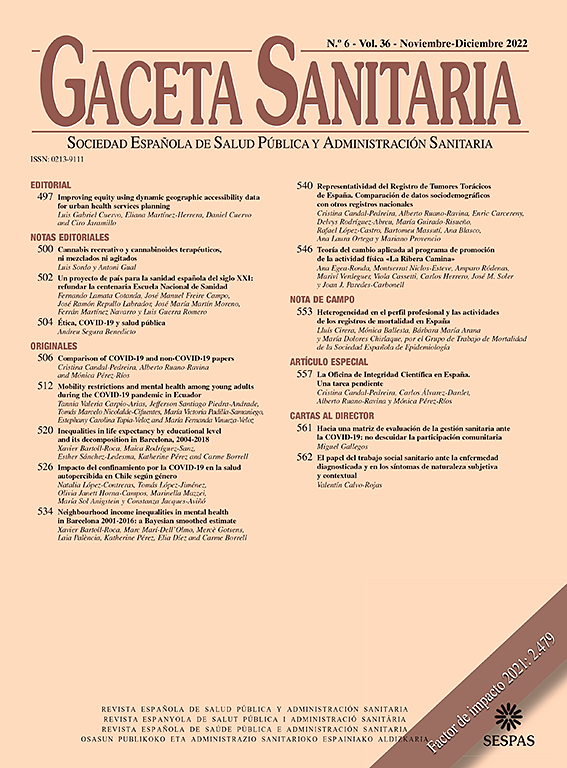
Experimental Study
Ginger honey supplementation does not reduce cortisol levels, however, it significantly increases glutathione and estrogen levels in test mice.
Usman AN, Raya I, Yasmin R, Aliyah , Dirpan A, Arsyad A, Permatasari AE, Sumidarti A, Umami N, Emmasitah
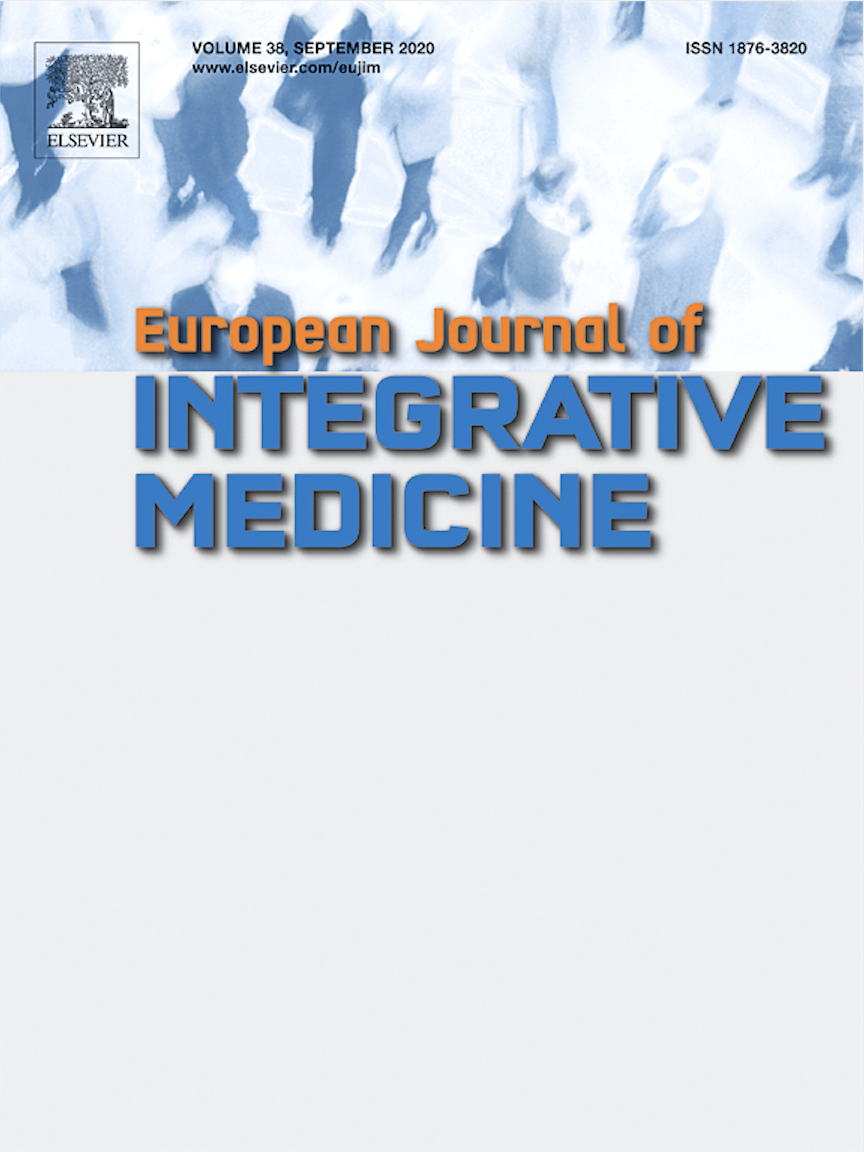
Systematic Review
Compared with western medicine, acupuncture significantly increased the pregnancy and ovulation rates, as well as reducing the rate of miscarriages among Chinese women with infertility.
Zhang, J., He, Y., Liu, Y., Huang, X., & Yu, H.

Systematic Review
Acupuncture and its combined therapy may be effective for treating female infertility, however, the included studies are not robust enough to draw a firm conclusion.
Yun L, Liqun W, Shuqi Y, Chunxiao W, Liming L, Wei Y

Systematic Review
Acupuncture shows promise in improving endometrial receptivity and fertility outcomes in infertile women, but further high-quality research is needed to establish its effectiveness definitively.
Zhong, Y., Zeng, F., Liu, W. et al.
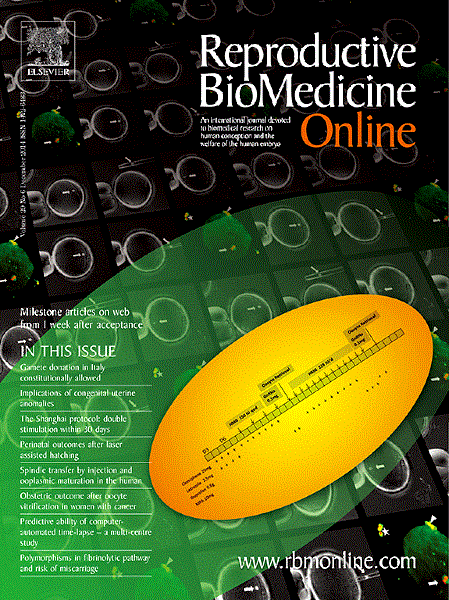
Systematic Review
Acupuncture may have a significant effect on clinical pregnancy rates, independent of comparator group, when used in women who have had multiple previous IVF cycles, or where there was a low baseline pregnancy rate.
Smith, C. A., Armour, M., Shewamene, Z., Tan, H. Y., Norman, R. J., & Johnson, N. P.

Systematic Review
Despite some indications of improved clinical pregnancy rates, the overall effectiveness of acupuncture as a treatment for couples with subfertility undergoing assisted reproduction therapy remains inconclusive and requires further high-quality research.
Xi, J., Chen, H., Peng, Z., Tang, Z., Song, X., & Xia, Y.

Systematic Review
Acupuncture may increase the clinical pregnancy rate and ongoing pregnancy rate and decrease the risk of ovarian hyperstimulation syndrome in women with PCOS undergoing IVF or ICSI.
Jo J, Lee YJ
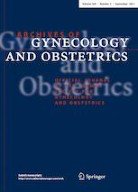
Systematic Review
Acupuncture improves the clinical pregnancy rate among women undergoing IVF and the IVF outcome results were significantly superior in the acupuncture group when acupuncture was conducted during controlled ovarian hyperstimulation.
Qian, Y., Xia, X.-R., Ochin, H., Huang, C., Gao, C., Gao, L., Cui, Y.-G., Liu, J.-Y., & Meng, Y.

Review Article
Date palm pollen (DPP) containing various compounds has been used as an aphrodisiac and fertility enhancer historically and shows promise in treating fertility disorders.
Tahvilzadeh M, Hajimahmoodi M, Rahimi R
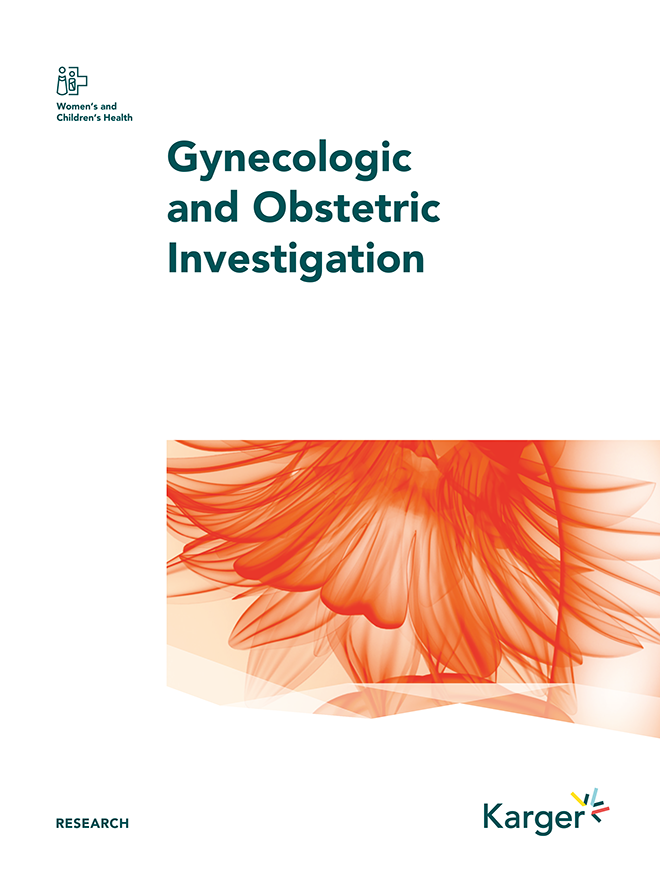
Systematic Review
We found pooled benefit of acupuncture for IVF when performed at follicle phase and 25 min before and after embryo transfer, as well as 30 min after embryo transfer and implantation phase.
Shen C.,Wu M., Shu D., Zhao X. and Gao Y.
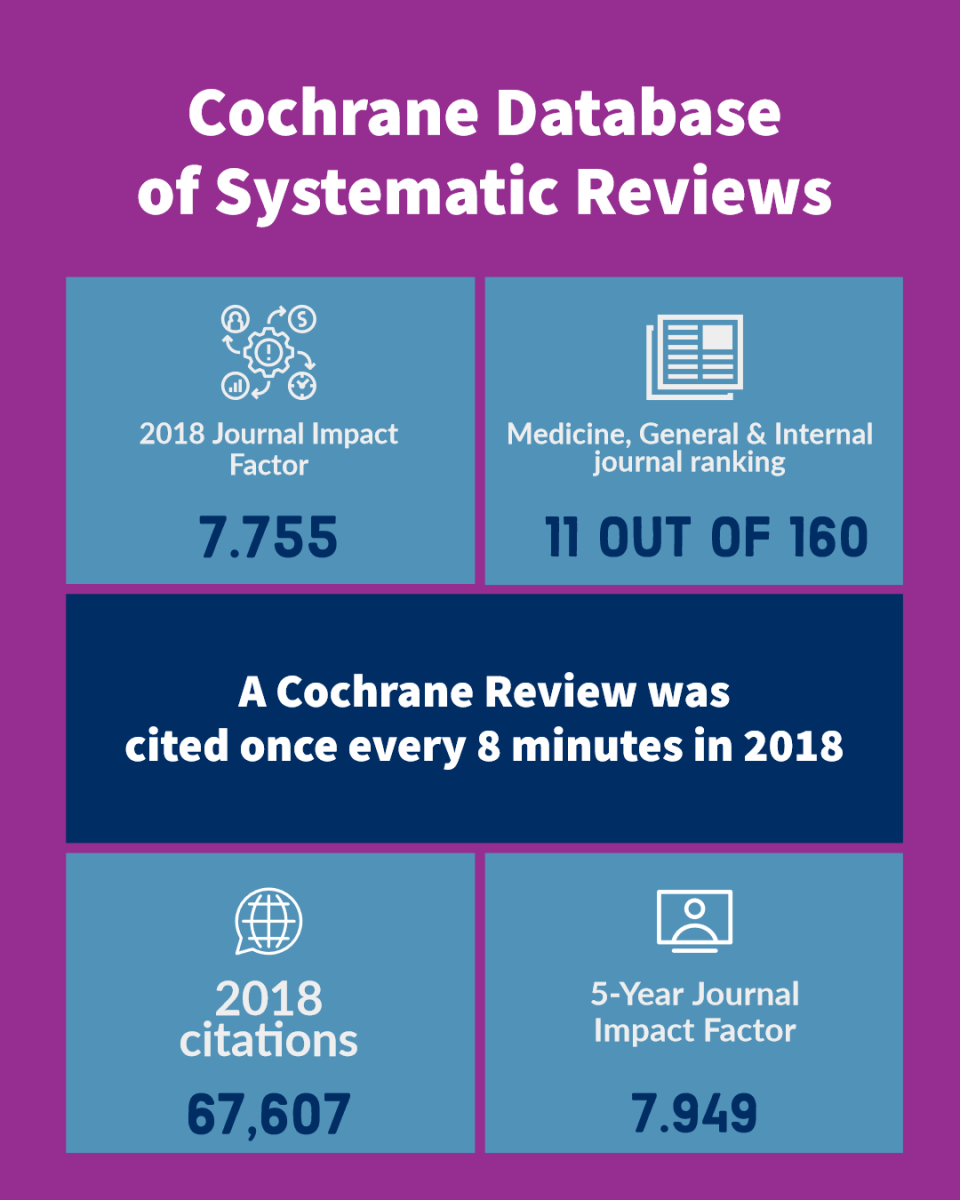
Systematic Review
Despite its widespread use during assisted reproductive technology (ART) cycles, acupuncture does not appear to improve live birth or pregnancy rates in couples dealing with subfertility.
Cheong YC, Dix S, Hung Yu Ng E, Ledger WL, Farquhar C

Systematic Review
The meta-analysis indicates that while adjuvant acupuncture does not show a pooled benefit for in vitro fertilization (IVF) across all trials, it appears to have a more significant effect in trials with lower baseline pregnancy rates, warranting further investigation and confirmation in additional studies.
Manheimer, E. ., van der Windt, D., Cheng, K., Stafford, K., Liu, J. ., Tierney, J., Lao, L. ., Berman, B. ., Langenberg, P., & Bouter, L.
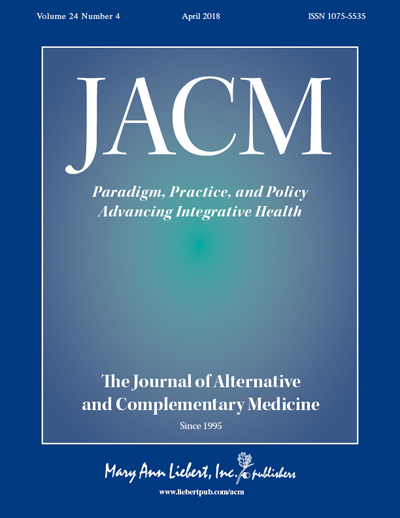
Systematic Review
The meta-analysis suggests that acupuncture does not provide significant benefits in improving the outcomes of in vitro fertilization (IVF) or intracytoplasmic sperm injection (ICSI) treatments.
Qu, F., Zhou, J., & Ren, R.-X.
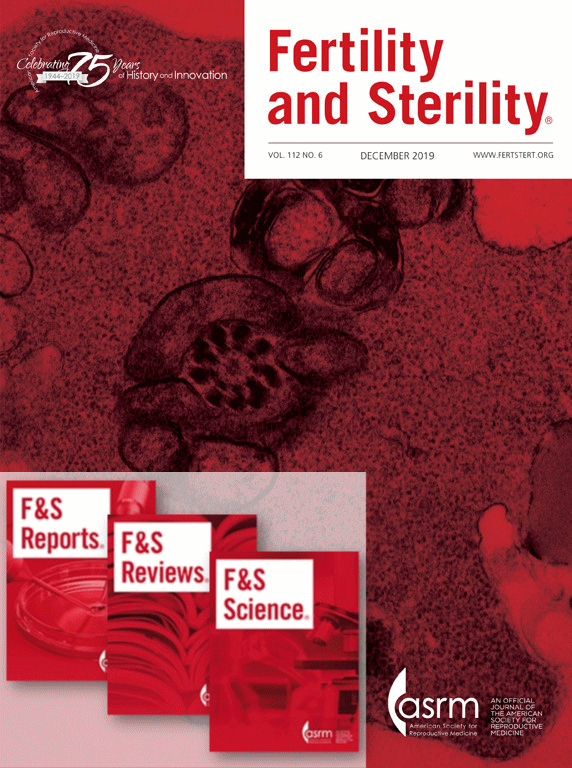
Systematic Review
Acupuncture appears to improve clinical pregnancy rate and live birth rate in women undergoing in vitro fertilization, but the choice of control used in studies may influence the outcomes.
Zheng, C. H., Huang, G. Y., Zhang, M. M., & Wang, W.
Executive Summary
Write an executive summary in the form of a blog article on the topic of "Research into Chinese medicine treatment for Female Fertility" summarising the research below and using language that can be easily understood by patients and avoiding medical jargon using a professional and caring tone of voice.
Write an executive summary in the form of a blog article on the topic of "Researched Chinese medicine treatments for Female Fertility" summarising the research below in an objective and easy to understand way, and using language that can be easily understood by patients. Group the article into Chinese medicine treatments first, followed by nutrition and other treatments. Avoid using medical jargon and use a professional and caring tone of voice.
Write me a concise but easy to understand executive summary on the topic of "Chinese medicine treatments for Female Fertility" based on the following research that I will give you. Your summary should be 2 paragraphs long in Australian English spelling and include references to the studies.
A Systematic Review published in 2024 in the journal Heliyon found that Increased omega-3 intake significantly improves women's chances of pregnancy and fertilization rates. The methodology involved retrieving articles from databases like PubMed, Clinical Trials, CINAHL/EBSCO, Medline Complete, and Cochrane Library, published up to April 2021 using keywords related to omega-3, fertilization, and pregnancy. The selection criteria included studies that reported female fertility occurring naturally or intracytoplasmic sperm injection techniques concurrent with omega-3 intake, excluding retrospective studies, studies featuring postmenopausal women, or those with unevenly matched research groups. A meta-analysis was conducted using the extracted odds ratios of clinical pregnancies and fertilization rates from each study. The results, drawn from six fertility treatment-related trials with 1789 women, four trials with 2607 women who conceived naturally, and three further trials involving 1725 oocytes for fertility rates, consistently show the beneficial effects of omega-3. These findings, however, exhibited a high degree of heterogeneity, suggesting variable factors across the studies might have influenced the outcomes.
A Systematic Review published in 2024 in the journal Advances in Nutrition found that Regular consumption of nuts improves sperm parameters such as motility, vitality, and morphology, potentially promoting successful reproductive outcomes in healthy males. The researchers in this study carried out a systematic review and meta-analysis, exploring the impact of nut intake on fertility outcomes. They sourced data from four databases: Ovid MEDLINE, Embase, CINAHL, and Scopus, from their inception until June 2023. The inclusion criteria for articles were humans of reproductive age who had consumed nuts for a minimum of three months, with any consequent fertility-related outcomes reported. The researchers undertook a random-effects meta-analysis to produce a collective estimate of the effect of nut consumption on four specific sperm characteristics: total motility, vitality, morphology, and concentration. In this review and meta-analysis, the researchers involved four studies, evaluating a total of 875 participants, composed of 646 males and 229 females. For males, two randomized control trials involving 223 individuals revealed that a daily consumption of at least 60g of nuts led to an improvement in sperm motility, vitality, and morphology, compared to those consuming fewer nuts, though it did not affect sperm concentration. Conversely, the non-randomized studies could not discern an association between nut consumption and traditional sperm parameters in males, nor could they establish a link between nut intake and embryo implantation, clinical pregnancy or live birth in males and females undergoing Assisted Reproductive Technology (ART).
A Review Article published in 2023 in the journal Human Reproduction Update found that The Mediterranean diet and reduced intake of trans fatty acids, saturated fatty acids, and discretionary foods like fast food and sugar-sweetened beverages may improve fertility rates. This title represents a systematic scoping review of four electronic databases, namely Medline and EMBASE via Ovid Processing, CAB Direct, and CINAHL via EBSCO. The researchers included observational works, consisting of prospective and retrospective cohort, cross-sectional, and case-control studies, up to September 27, 2021. The criteria for study inclusion were women of reproductive age in the preconception stage who were examined for the connection between preconception diet and fertility outcomes. From the total of 36 studies that were found eligible for review, the one diet that stood out with the most significant and consistent association with increased clinical pregnancy rates was the Mediterranean diet. Dietary factors such as reducing trans fatty acids, saturated fatty acids, and discretionary food intake, which includes fast food and sugar-rich drinks, were found to lead to an improvement in live birth, clinical pregnancy rates, and associated ART outcomes. However, this study also found that elements like seafood, dairy, and soy showed varying findings across a few studies. Despite the mixed results, it was noted that following some of these dietary regulations, notably Mediterranean diet, shows consistency with healthy eating guidelines, implying potential benefits in fertility.
A Systematic Review published in 2022 in the journal European Journal of Obstetrics & Gynecology and Reproductive Biology found that Increased intake of omega-3 can enhance the quality of oocyte and embryo, thereby potentially improving the success rate of assisted reproductive techniques. The systematic review was conducted adhering to the PRISMA 2020 statement and the procedure was registered with PROSPERO. Women who were undergoing assisted reproductive techniques such as in vitro fertilisation or intracytoplasmic sperm injection, and whose diets were evaluated for omega-3 intake, were the focal point. The analysis looked at women who had an increased omega-3 intake compared to women undergoing the same procedures without an increased omega-3 intake prior to the cycle. A wide range of literature was reviewed, selecting five relevant studies which consisted a large number of records. The results of these five studies show a beneficial effect of omega-3 fats on the success rate of assisted reproductive outcomes. This is primarily illustrated by an increase in the quality of both the oocyte and the embryo, recognised through enhanced morphological and morphokinetic parameters. While the studies viewed varied in specifics, all pointed to the optimistic impact of increasing omega-3 intake in women seeking pregnancy through assisted methods.
A Randomised Controlled Trial published in 2022 in the journal BMC Research Notes found that The intake of date palm enhances the sexual function in infertile couples. The research employed a double-blind, placebo-controlled clinical trial approach involving infertile couples who frequented infertility clinics in Iran in 2019. The intervention group was administered with a capsule of date palm, while the control group was given a placebo. The data on the sexual function of the subjects was gathered using the female sexual function index and the International Index of Erectile function. All areas of sexual function in both males and females, which include erectile function, orgasmic function, sexual desire, intercourse satisfaction, arousal, lubrication, and pain during intercourse, showed a significant enhancement in the group that consumed date palm in contrast to the control group. This study continued for a month and it demonstrated that date palm indeed has a favorable effect on the sexual functioning of infertile couples.
A Randomised Controlled Trial published in 2021 in the journal Reproductive BioMedicine & Society Online found that Women receiving IVF perceived that acupuncture or sham acupuncture gave them a psychological advantage through increased relaxation, reduced psychological stress, and enhanced well-being and self-efficacy. In this qualitative study, participants reported that compassionate care and an opportunity to rest during IVF, and especially following embryo transfer, had an emotionally important effect. All women in the trial underwent the same procedural practices which involved bed rest during needling, among other comforts. Some women described benefitting purely from this opportunity to rest quietly in a supportive environment amidst the maelstrom of IVF. There was also recognition that this ‘oasis’, albeit brief, was an important time for allowing the meaning of having an embryo transferred to ‘soak in’, and presented an oppportunity to ‘be in the moment’.
A Systematic Review published in 2021 in the journal Evidence-Based Complementary and Alternative Medicine found that Acupuncture therapy on patients with recurrent implantation failure can improve the pregnancy outcome of patients. It is a relatively effective treatment with satisfactory safety and suitable for clinical application. The aim of this analysis was to identify the efficacy and safety of acupoint stimulation therapy for RIF patients. The results of meta-analysis show that for the outcome measurements including clinical pregnancy rate, biochemical pregnancy rate, embryo implantation rate, and endometrial thickness, the use of acupuncture in the treatment group is higher than the sham or nonacupuncture group, in which the difference is statistically significant. These results are believable and reliable. The included studies are highly homogeneous and there is no obvious publication bias. However, large heterogeneity appears in the statistical analysis of the endometrial thickness. Moreover, there was no statistical significance in the number of embryo transfers and the type of endometrium.
A Systematic Review published in 2021 in the journal American Journal of Reproductive Immunology found that Various types of genital mycoplasma infections are significantly linked to female infertility. The researchers carried out a systematic review of literature to study the connection between genital mycoplasma infection and female infertility. They used three electronic databases, PubMed, Scopus, and CINAHL, to gather studies conducted between January 2000 and January 2020. They derived pooled odds ratios and confidence intervals from a fixed effects model to determine the likelihood of female infertility due to genital mycoplasma infection. The gathered studies showed that women suffering from infertility had higher odds of having some form of genital mycoplasma infection. The meta-analysis included a total of eight studies from six different countries. Subgroup analysis indicated a significant relation of infertility with particular infections, namely, Mycoplasma genitalium, Mycoplasma hominis, and Ureaplasma urealyticum. This key finding supports the development of guidelines targeting the diagnosis and treatment of these infections as a means to prevent female infertility.
A Experimental Study published in 2021 in the journal Gaceta Sanitaria found that Ginger honey supplementation does not reduce cortisol levels, however, it significantly increases glutathione and estrogen levels in test mice. The methodology involved an in vivo pretest-posttest control group design study conducted on 2-3 month old female Balb/c mice, selected due to not having experienced conception. These mice were split into a negative control and an intervention group, the latter receiving 28mg/20g body weight of ginger honey for 14 days. Prior to the supplementation, the mice were subjected to swimming-induced stress. Cortisol, glutathione, and estrogen levels were assessed using the ELISA testing method. In the discussion of results, the findings indicated that 14 days of ginger honey supplementation did not significantly affect cortisol levels in the female mice. Contrastingly, a considerable boost was observed in both glutathione and estrogen levels. This suggests a potential role for ginger honey supplements as complementary therapies, though not for the management of cortisol-related stress.
A Systematic Review published in 2020 in the journal European Journal of Integrative Medicine found that Compared with western medicine, acupuncture significantly increased the pregnancy and ovulation rates, as well as reducing the rate of miscarriages among Chinese women with infertility. Twenty-four eligible RCTs (n=2095) were included in this review. The NMA data showed that warm acupuncture had the highest chances of increasing the rate of pregnancy while acupuncture most positively affected the ovulation rate. On the other hand, a combination of acupuncture and moxibustion had the most significant improvement in endometrial thickness and could reduce the rate of pregnancy loss.
A Systematic Review published in 2019 in the journal Medicine found that Acupuncture and its combined therapy may be effective for treating female infertility, however, the included studies are not robust enough to draw a firm conclusion. Current evidence identified from this review suggested that acupuncture may be effective in the treatment of female infertility. The conclusion of this present review is limited by the low quality of the included studies. Future multicenter RCTs with rigorous methodological quality are needed to clarify the role of acupuncture in female infertility.
A Systematic Review published in 2019 in the journal BMC Complementary Medicine and Therapies found that Acupuncture shows promise in improving endometrial receptivity and fertility outcomes in infertile women, but further high-quality research is needed to establish its effectiveness definitively. This systematic review aimed to assess the effectiveness of acupuncture in improving endometrial receptivity (ER) based on randomized controlled trials (RCTs). The review included RCTs of infertile women with low ER and excluded other causes of infertility or non-RCTs. The researchers conducted an extensive search through various databases up to August 2018 without language restrictions. After analyzing the collected data, they found evidence indicating that acupuncture may enhance pregnancy rate, embryo transfer rate, trilinear endometrium, endometrial thickness, and decrease resistive index, pulse index, and peak systolic velocity/end-diastolic blood velocity when compared with medication, sham acupuncture, or physiotherapy. However, the overall level of evidence was mostly very low or low. Despite the statistically significant results, the authors emphasize the need for more large-scale, long-term RCTs with robust methodologies to further validate the efficacy and safety of acupuncture for women with low ER
A Systematic Review published in 2019 in the journal Reproductive BioMedicine Online found that Acupuncture may have a significant effect on clinical pregnancy rates, independent of comparator group, when used in women who have had multiple previous IVF cycles, or where there was a low baseline pregnancy rate. Evidence suggests acupuncture may be effective when compared with no adjunctive treatment, with increased clinical pregnancies and live births, but is not an efficacious treatment when compared with sham controls. Future research should focus on different dosing acupuncture regimens, and exploration of the components of acupuncture that are contributing to improved reproductive outcomes. Increased understanding of these components may have broader application to the care and treatment modalities provided to women undergoing IVF. Further exploration of the effects of acupuncture for women with poorer IVF outcomes is warranted.
A Systematic Review published in 2018 in the journal Evidence-Based Complementary and Alternative Medicine found that Despite some indications of improved clinical pregnancy rates, the overall effectiveness of acupuncture as a treatment for couples with subfertility undergoing assisted reproduction therapy remains inconclusive and requires further high-quality research. This abstract summarizes the findings of systematic reviews and meta-analyses assessing the effectiveness of acupuncture in treating couples with subfertility undergoing assisted reproduction therapy (ART). The review included eleven studies published between 2009 and 2017 and examined primary outcomes of live birth and clinical pregnancy, and secondary outcomes of ongoing pregnancy, miscarriage, and adverse events. The results suggest that acupuncture may improve the clinical pregnancy rate in ART patients. However, there was insufficient evidence to support its impact on live birth rate, ongoing pregnancy rates, or miscarriage, mainly due to the low quality of the included studies. The overall effectiveness of acupuncture in treating subfertility during ART remains uncertain, emphasizing the need for further high-quality research and well-reported trials.
A Systematic Review published in 2017 in the journal Acupuncture in Medicine found that Acupuncture may increase the clinical pregnancy rate and ongoing pregnancy rate and decrease the risk of ovarian hyperstimulation syndrome in women with PCOS undergoing IVF or ICSI. Acupuncture may increase the CPR and OPR and decrease the risk of OHSS in women with PCOS undergoing IVF or ICSI. Further studies are needed to confirm the efficacy and safety of acupuncture as an adjunct to assisted reproductive technology in this particular population.
A Systematic Review published in 2016 in the journal Archives of Gynecology and Obstetrics found that Acupuncture improves the clinical pregnancy rate among women undergoing IVF and the IVF outcome results were significantly superior in the acupuncture group when acupuncture was conducted during controlled ovarian hyperstimulation. When the studies were restricted to Asian or non-Asian area patients, compared with traditional acupuncture and other methods, electrical acupuncture yielded better IVF outcomes. Optimal positive effects could be expected using acupuncture in IVF during controlled ovarian hyperstimulation, especially in Asian area. However, as a limitation of this review, most of the included studies did not mention the number of embryos transferred.
A Review Article published in 2016 in the journal Journal of Evidence-Based Complementary & Alternative Medicine found that Date palm pollen (DPP) containing various compounds has been used as an aphrodisiac and fertility enhancer historically and shows promise in treating fertility disorders. The study focused on the analysis of date palm pollen (DPP), the male reproductive dust of palm flowers, traditionally used as a dietary supplement, especially as a fertility enhancer. The research underlined the investigation of the various compounds isolated from DPP, which include amino acids, fatty acids, flavonoids, saponins, and estroles. The discussion of the results reveals that while there are a limited number of clinical trials evaluating the benefits of DPP in humans, a number of experimental studies have been conducted on the reproductive effects of DPP. These compounds and their effects potentially contribute to DPP's application in treating fertility disorders. It was concluded that DPP holds considerable promise in the context of fertility therapy, demonstrating key pharmacological activities that could be harnessed for treatment.
A Systematic Review published in 2015 in the journal Gynecologic and Obstetric Investigation found that We found pooled benefit of acupuncture for IVF when performed at follicle phase and 25 min before and after embryo transfer, as well as 30 min after embryo transfer and implantation phase. Our study showed that acupuncture increased pregnancy rates when performed at follicle phase and 25 min before and after ET or 30 min after ET and after the implantation phase in the IVF process. However, there was no statistically significant difference in women undergoing IVF between treatment performed only around the time of ET, follicle phase or implantation phase. The study of Zheng et al. also showed that the pooled CPR result around the time of ET showed no significant differences between all acupuncture groups and the control groups. However, the CPR result of acupuncture performed around the time of controlled ovarian hyperstimulation showed a significant difference. The potential impact of acupuncture in the treatment of female infertility on the hypothalamic-pituitary-ovarian axis and on the uterus was significant, but the specific mechanism was still unknown.
A Systematic Review published in 2013 in the journal Cochrane Database of Systematic Reviews found that Despite its widespread use during assisted reproductive technology (ART) cycles, acupuncture does not appear to improve live birth or pregnancy rates in couples dealing with subfertility. This passage discusses a meta-analysis that aimed to determine the effectiveness and safety of acupuncture as an adjunct to assisted reproductive technology (ART) cycles for couples dealing with subfertility. The review included 20 randomized controlled trials, analyzing the impact of acupuncture on live birth rate, ongoing pregnancy rate, miscarriage rate, and side effects. The findings indicate that acupuncture did not show any overall benefit in improving live birth or pregnancy rates during ART cycles, regardless of whether it was performed around oocyte retrieval or embryo transfer. Additionally, acupuncture did not have significant side effects. The authors conclude that there is no evidence supporting the use of acupuncture to enhance live birth or pregnancy rates in assisted conception.
A Systematic Review published in 2013 in the journal Human Reproduction Update found that The meta-analysis indicates that while adjuvant acupuncture does not show a pooled benefit for in vitro fertilization (IVF) across all trials, it appears to have a more significant effect in trials with lower baseline pregnancy rates, warranting further investigation and confirmation in additional studies. This passage presents a meta-analysis that aimed to assess the overall pooled effects of adjuvant acupuncture on in vitro fertilization (IVF) clinical pregnancy success rates, as well as identify factors that might explain the heterogeneity of results across trials. The analysis included 16 trials with 4021 participants and found no statistically significant difference between acupuncture and control groups when combining all trials or analyzing sham-controlled and no adjuvant treatment-controlled trials separately. However, the study identified baseline pregnancy rate as a significant effect modifier, with trials having lower control group pregnancy rates showing larger effects of adjuvant acupuncture. Overall, the meta-analysis did not find a pooled benefit of adjuvant acupuncture for IVF, but the potential benefit in trials with lower baseline pregnancy rates requires further exploration and confirmation in additional studies due to potential confounders and publication bias.
A Systematic Review published in 2012 in the journal The Journal of Alternative and Complementary Medicine found that The meta-analysis suggests that acupuncture does not provide significant benefits in improving the outcomes of in vitro fertilization (IVF) or intracytoplasmic sperm injection (ICSI) treatments. The article conducted a systematic review with a meta-analysis of trials on acupuncture during in vitro fertilization (IVF) or intracytoplasmic sperm injection (ICSI) treatment. The pooled analysis of 17 trials showed that acupuncture did not significantly impact clinical pregnancy, biochemical pregnancy, ongoing pregnancy, implantation rate, live birth, or miscarriage outcomes. Therefore, the study concludes that there are no significant benefits of acupuncture in improving IVF or ICSI outcomes.
A Systematic Review published in 2012 in the journal Fertility and Sterility found that Acupuncture appears to improve clinical pregnancy rate and live birth rate in women undergoing in vitro fertilization, but the choice of control used in studies may influence the outcomes. This systematic review and meta-analysis aimed to evaluate the effect of acupuncture on in vitro fertilization (IVF) outcomes. The study included 24 randomized controlled trials with a total of 5,807 participants. The acupuncture intervention groups used manual, electrical, and laser acupuncture techniques, while the control groups consisted of no, sham, and placebo acupuncture. The main outcome measures were clinical pregnancy rate (CPR) and live birth rate (LBR). The analysis showed that the pooled CPR from all acupuncture groups was significantly higher than that from all control groups, indicating that acupuncture improves CPR and LBR among women undergoing IVF. However, the results differed when the type of control was considered, suggesting that the choice of control used in the studies might influence the outcomes. The Streitberger control, in particular, was found to have different effects compared to other controls. The authors concluded that more positive effects from using acupuncture in IVF can be expected if an appropriate control and more reasonable acupuncture programs are employed.
Moderation Tools
Topic
Sign In
Users not signed in are limited to viewing the 5 most recent items of content.